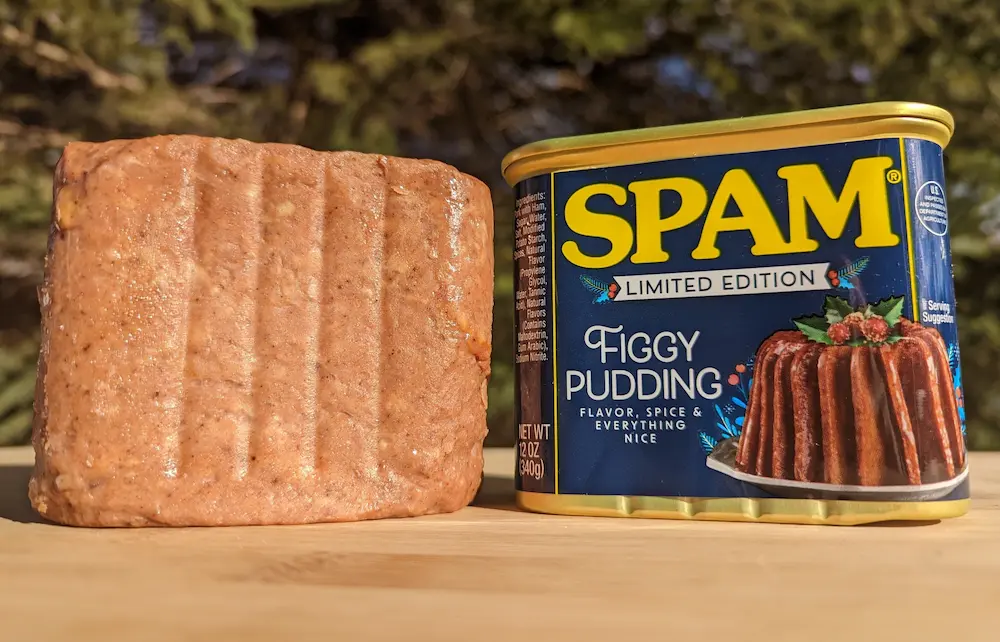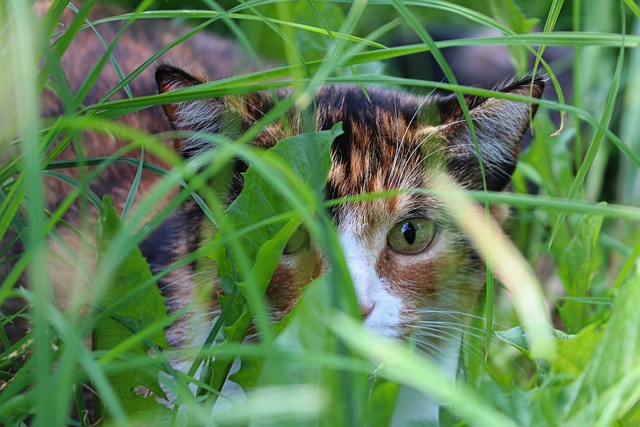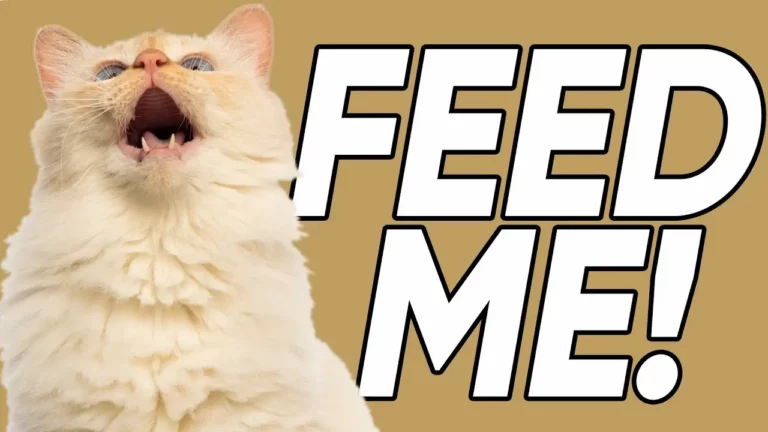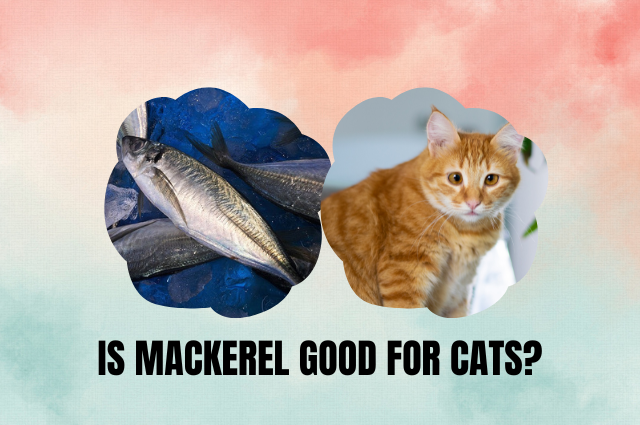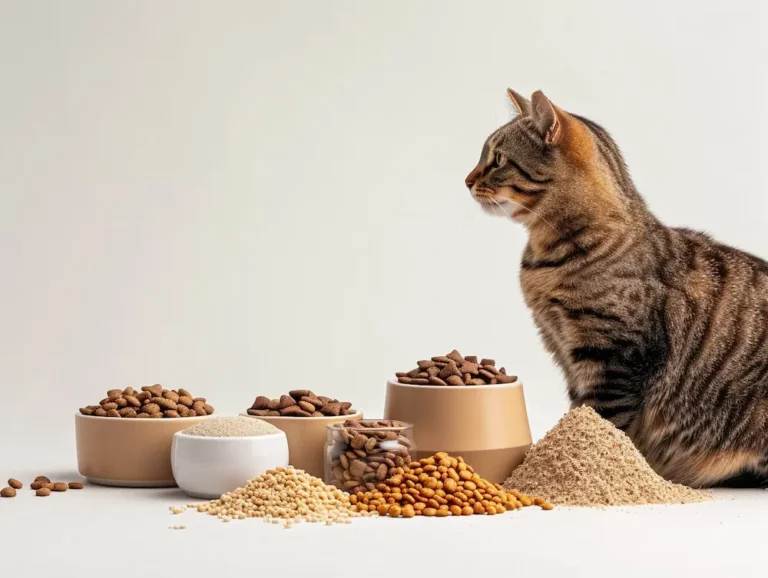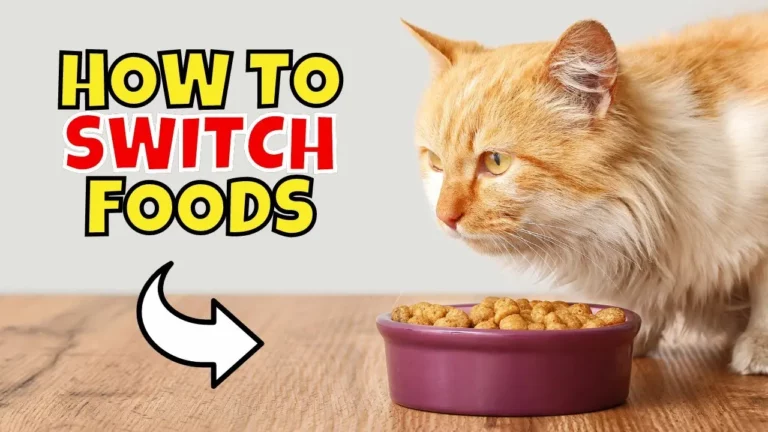Can Cats Eat Spam? Health Risks & Safe Alternatives Explained
If you’re a
Spam, that iconic canned pork product, might seem like a tasty treat to share with your
But before you let your
The Short Answer You Want
Let’s get straight to the point: Can cats eat spam?
Most varieties of spam are not toxic to cats, but this food is extremely high in sodium and fat, which can have a negative impact on the health of your
Spam is considered unhealthy for cats, and it would be best to avoid it entirely.
Now, let’s break down what spam really is and how much of an impact it can have on your beloved pet.
What Is Spam?
Spam is a brand of canned cooked meat that first appeared on the market in the 1930s. It’s primarily made from pork, with ham being a notably advertised ingredient.
Over the years, spam has become a staple in pantries around the world, praised for its versatility and long shelf life.
Pork, ham, potato starch, salt, water, sugar, and sodium nitrate make up the ingredients of spam.
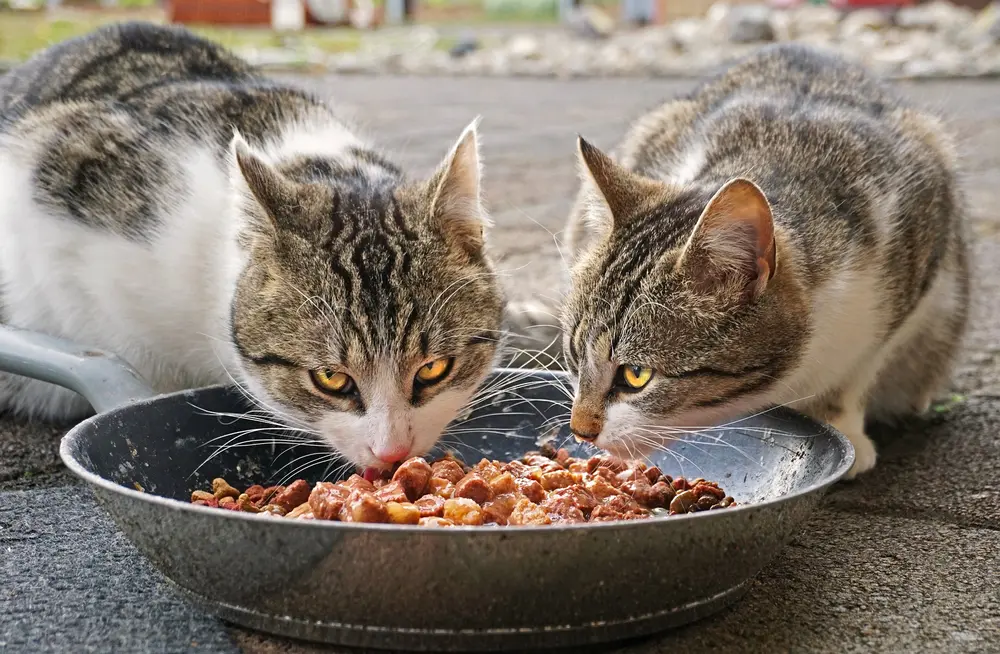
The simplicity might draw you in, but it’s crucial to consider the nutritional content lurking within.
In just a 2-ounce serving, Spam packs approximately 180 calories and 16 grams of fat, alongside a significant sodium punch.
It’s tempting to think our pets can enjoy everything we do, but their nutritional needs are vastly different from ours.
Spam, with its high fat and sodium content, might not align with a
Health Risks of Feeding Spam to Cats
The first red flag is the high sodium content in spam, which can elevate your pet’s health risk. Cats require a very specific amount of sodium in their diet, and an excess can lead to serious health issues.
A study I came across pointed out that while cats can tolerate up to three times the daily recommended sodium intake without immediate ill effects, this doesn’t mean it’s safe or healthy in the long run.
Over time, chronic high sodium intake can contribute to heart disease or hypertension in cats.
Considering the average can of spam can send a human’s sodium intake through the roof, imagine what it could do to a
Another major concern is the high-fat content in spam. Many of us are aware that too much fat in a
Consuming too much fat causes pancreatitis in cats —a condition that can be fatal even with immediate veterinary care.
The risk doesn’t end with survival; cats that have had pancreatitis need special diet considerations for the rest of their lives.
While it’s tempting to share human foods with our pets, it’s crucial to remember cats have different digestive systems and nutritional needs.
Regularly feeding them human food like spam can lead to nutritional imbalances, affecting their overall health and well-being. So, while it might look cute to see your
What Are Spam Alternatives?
Through my research and conversations with other veterinarians, I’ve learned that while it might be tempting to share our human foods with our pets, alternatives to spam are much better suited to maintaining their health and happiness.

For cats, lean meats are a fantastic substitute. Chicken, turkey, and fish (like mackerel), when cooked (and notably, boneless), offer high-quality protein without the excessive sodium and fat found in products like spam.
It’s important to remember these should be prepared plainly, with no harmful seasonings or additives. Here’s a quick list of safe and nutritious options I’ve compiled:
- Chicken (cooked and unseasoned)
- Turkey (also needs to be cooked without any spices)
- Fish (steamed or boiled, ensuring no bones)
I’ve also discovered that small amounts of plain cooked vegetables can be a healthy addition to a
But, these should be offered sparingly and always cooked without seasonings. Some
- Carrots
- Green beans
- Sweet potatoes
It’s essential to strike a balance, though. While introducing these healthier alternatives, it’s crucial to monitor portion sizes to prevent overfeeding, a common mistake that can lead to obesity – another significant concern in pet health.
Incorporating these into your
What To Do If Your Cat Eats Spam?
If my
Spam’s high sodium and fat content isn’t ideal for cats, but a small amount might not cause immediate harm.
My next step is usually to ensure that she has plenty of fresh water available.
The excessive salt in spam can lead to dehydration, so it’s crucial to encourage her to drink more water than usual. This helps to flush out some of the sodium from her system.
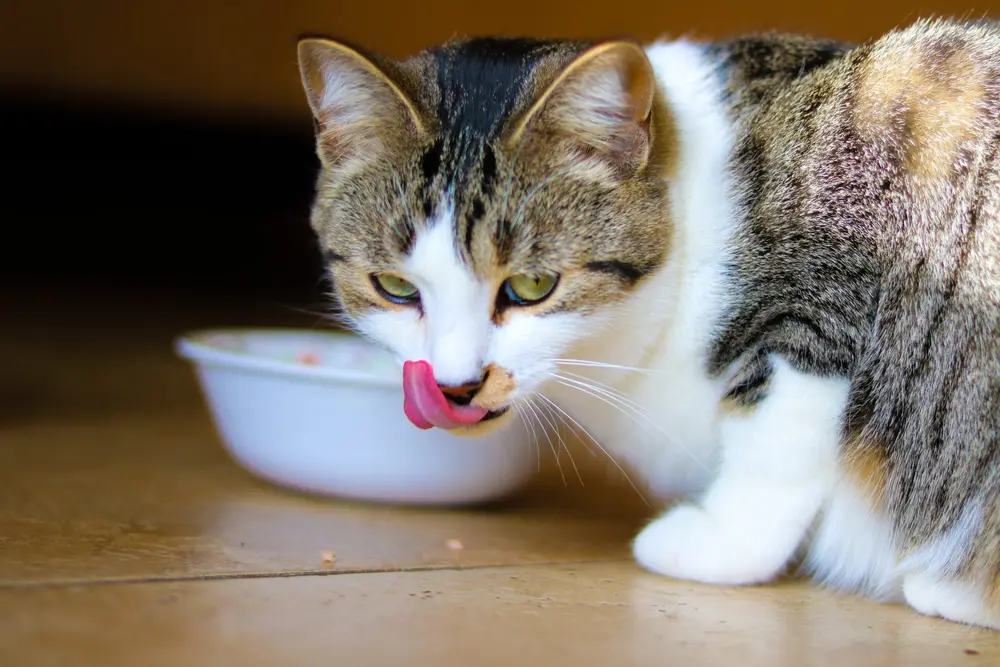
If she shows any signs of distress, such as vomiting, diarrhea, or lethargy, I know it’s time to call the vet. I’d then explain the situation in detail, including how much spam she ate and any symptoms she’s exhibiting.
The vet might simply recommend monitoring her at home if the symptoms are mild, or they may want to see her if there’s concern about salt poisoning or other complications.
To prevent future incidents, I’ve learned to be more careful with where I leave my food. I also take this opportunity to review her diet and ensure it’s balanced and meets her nutritional needs.
Incorporating safer, more suitable alternatives like lean meats or specially formulated treats can satisfy her curiosity without the risks that come with processed foods like spam.
Other Foods Your Cat Should Avoid
While exploring what cats can and can’t munch on, aside from spam, I’ve come across a handful of foods that have raised eyebrows among fellow
Chocolate and caffeine both contain substances like theobromine and caffeine that are toxic to cats. Even a small amount can cause vomiting, diarrhea, gastroenteritis, rapid breathing, and increased heart rate.
I’ve made it a rule in my house to keep all chocolates stored in a safe place where curious paws can’t find them.
Onions and garlic are another no-go. These foods, whether raw, cooked, or in powder form, contain compounds that can cause damage to your
I learned this the hard way after a close call when Mia snuck a bite of garlic bread left unattended on the counter.
Grapes and raisins have been recognized for causing kidney failure in dogs, but recent studies suggest they’re just as harmful to cats. I always make sure to keep any foods containing these out of Mia’s reach, as kidney health is paramount for cats.
Alcohol and raw dough can be especially dangerous, causing not only intoxication but potentially severe liver and brain damage.
The yeast in raw dough can also expand in your
Every
Wrapping Up
While it’s tempting to share our human foods with our furry friends, it’s clear that not everything on our plates is safe for them. I’ve learned that sticking to foods specifically designed for cats is the best way to keep them healthy and happy.
It’s always better to err on the side of caution and consult with a vet if you’re ever unsure about what to feed your
Let’s keep our beloved pets safe by making informed choices about their diet.
Remember, a healthy
